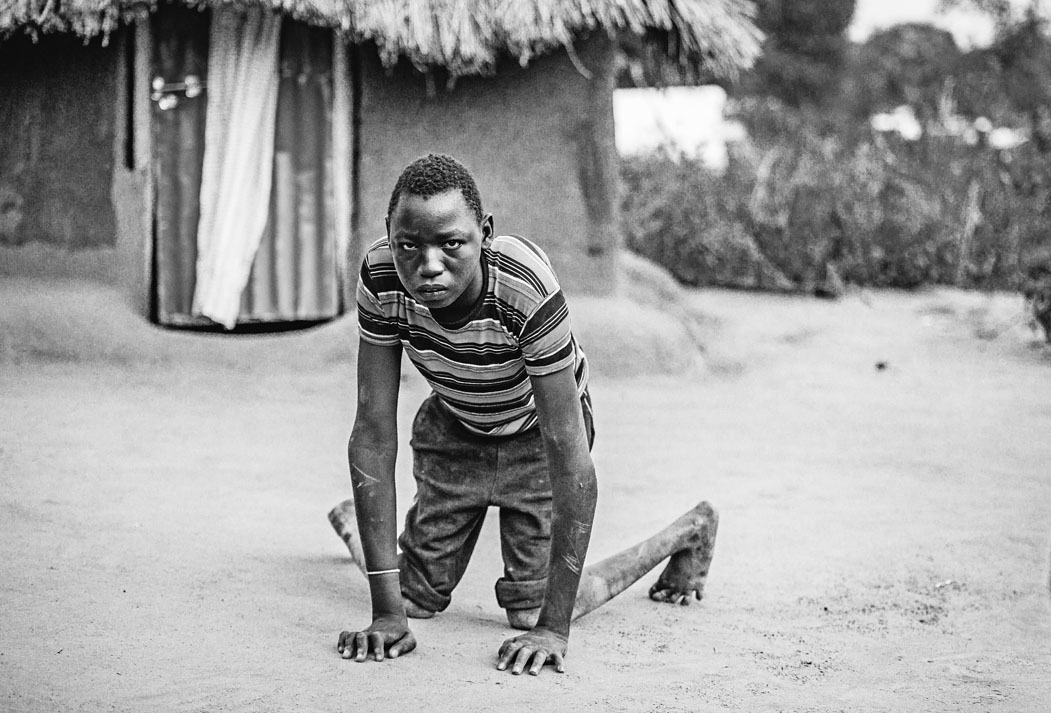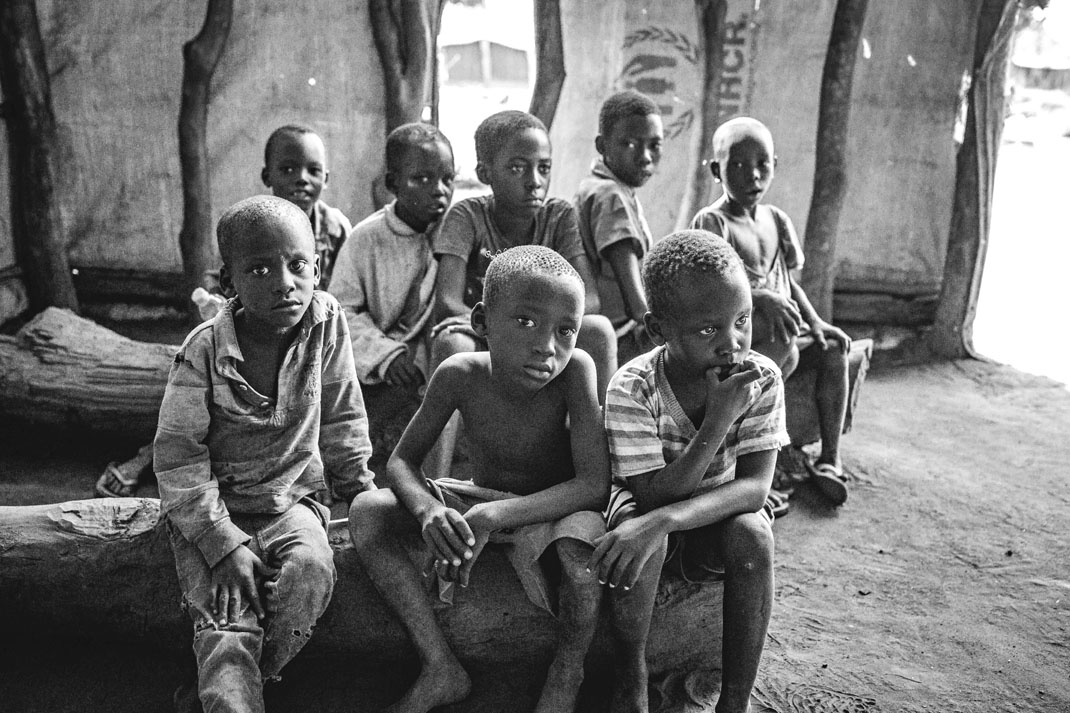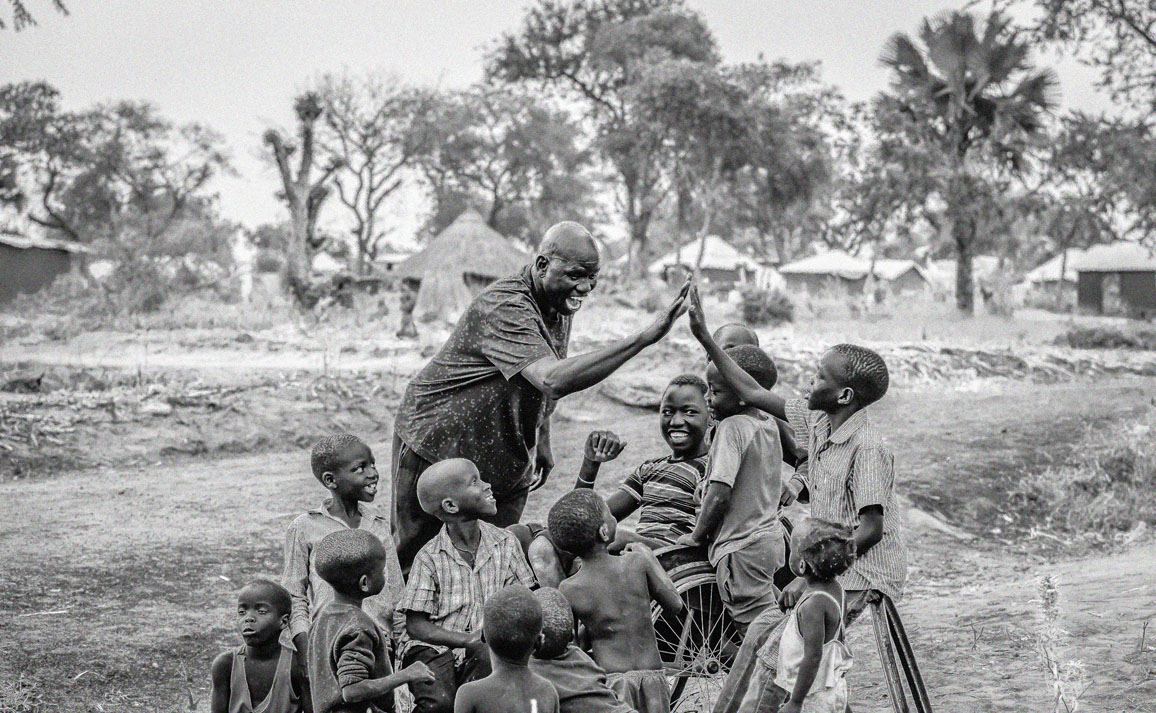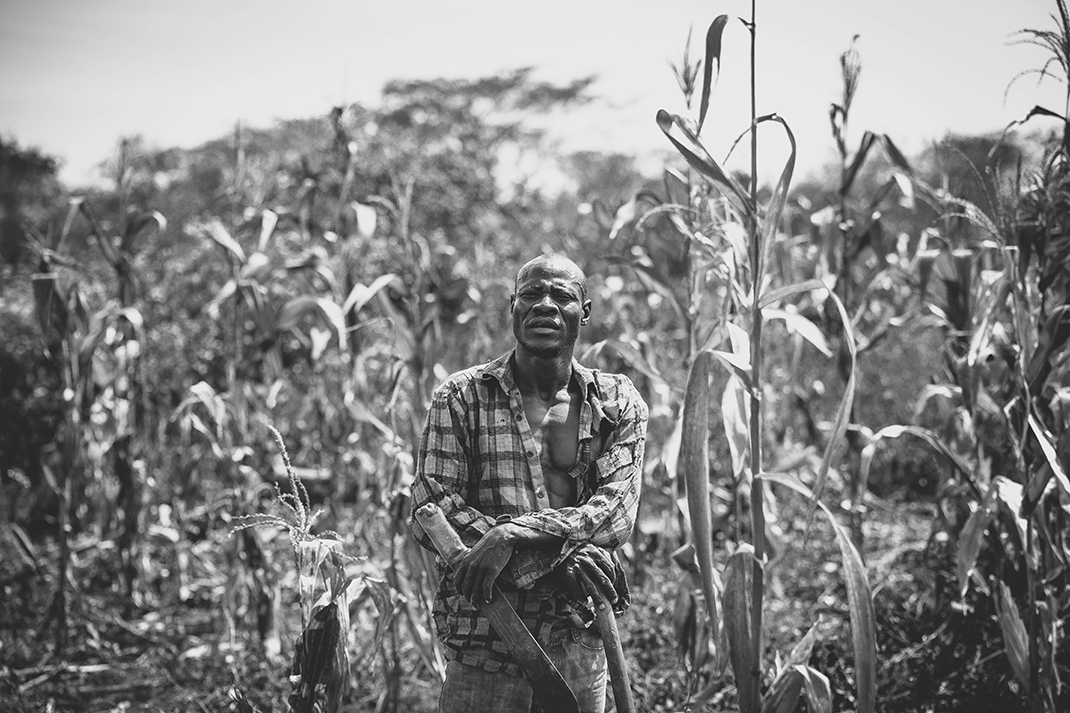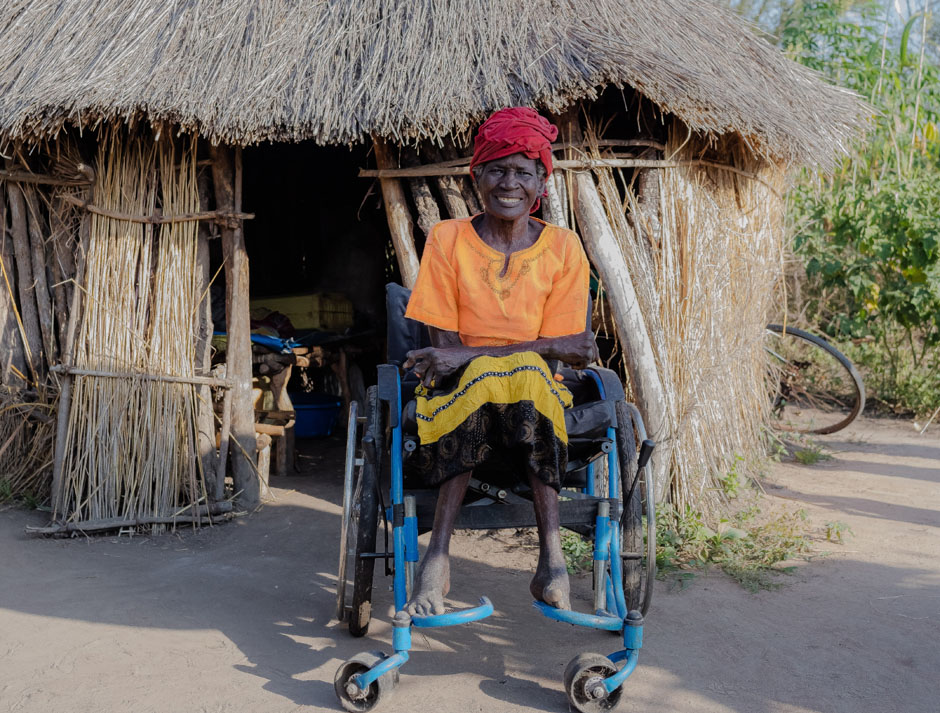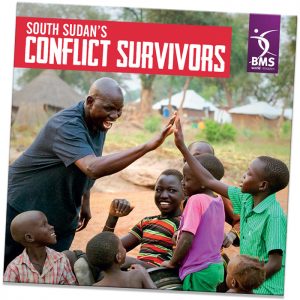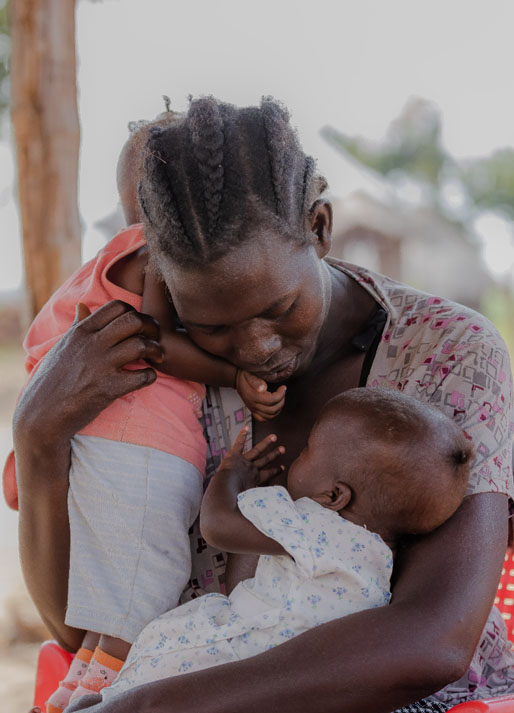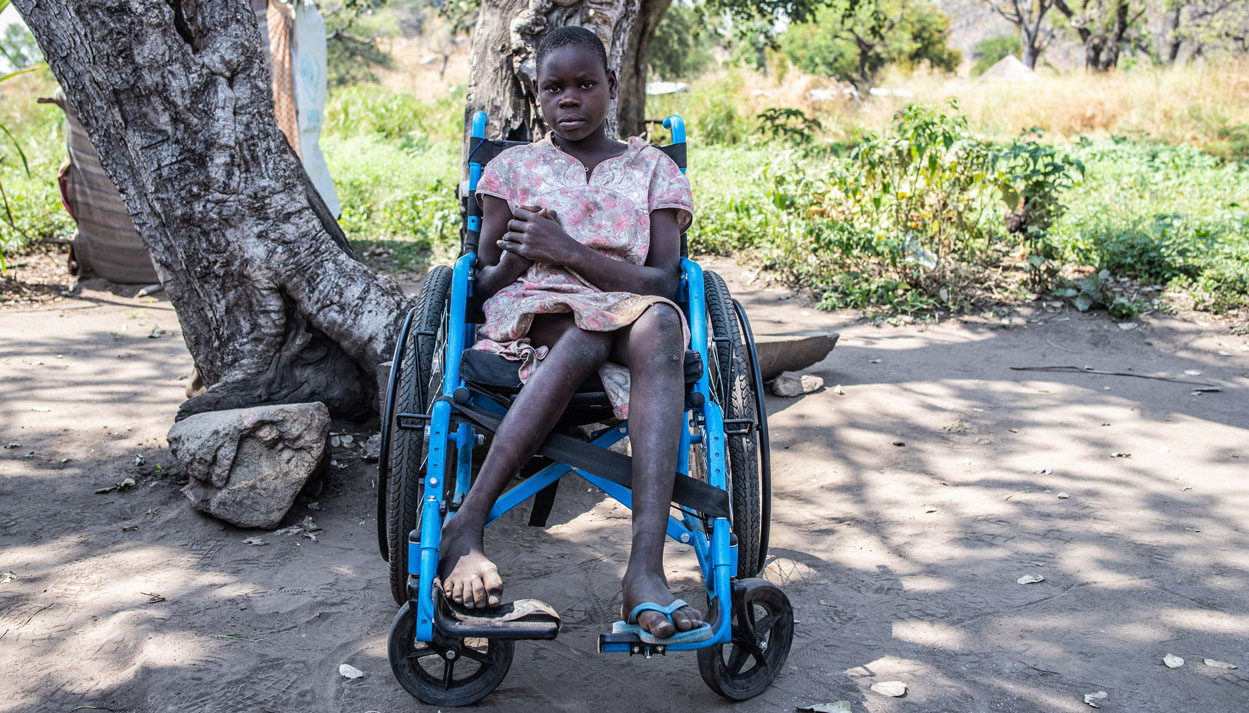Tech for mission
Tech for mission:
how cutting-edge tech is transforming lives
You heard it here first. BMS World Mission is harnessing the powers of science and faith to transform mission, thanks to your giving.
Technology is transforming mission. Evangelists are using social media to reach those who want to know Jesus in places where it’s too dangerous to ask about faith. Scientific advances and faithful BMS supporters are improving antenatal care for South Sudanese women in Uganda. What if science and faith were not arch-enemies but actually long-lost friends?
Your faithful prayers and generous giving are supporting BMS in bringing science and faith together across the world to transform lives. Bidi Bidi refugee camp, Uganda, now a settlement the size of Birmingham with over a quarter of a million people, is one of those places.
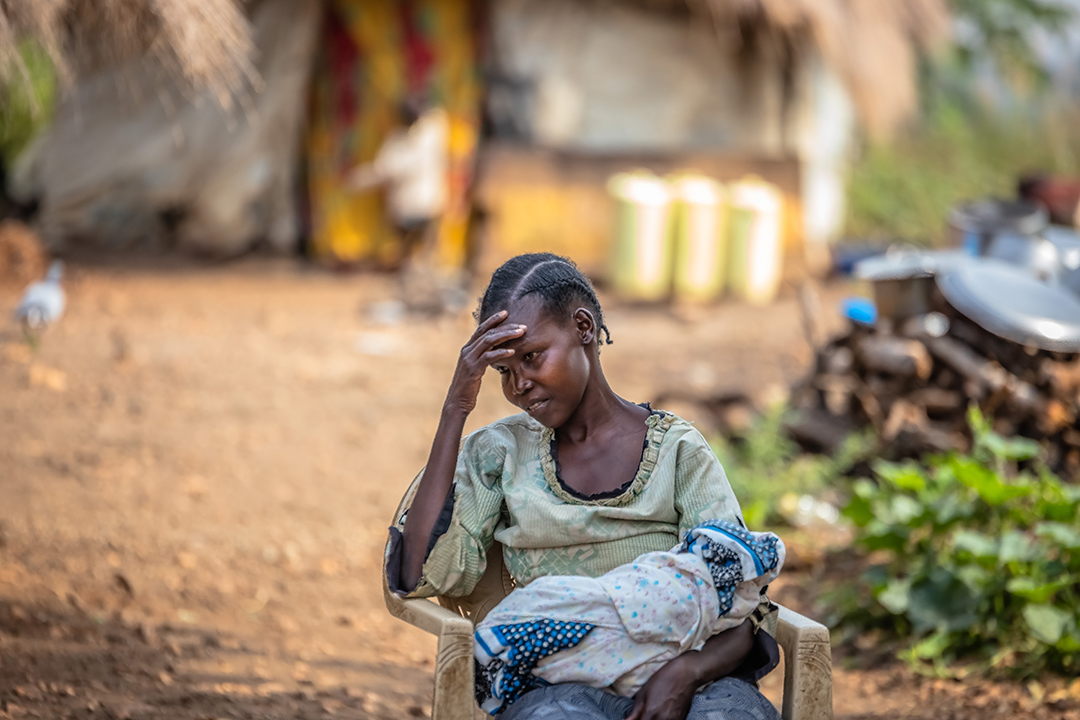
South Sudanese refugees have fled a terrifying and brutal civil war, with hundreds of thousands arriving at Bidi Bidi camp. Aya Joska is one of the conflict survivors living there. She was pregnant when she ran from men armed with guns and machetes, escaping with the clothes on her back and her unborn baby.
Arriving at a refugee camp may have meant safety for some, but it wasn’t total security for Aya. With 99 per cent of maternal deaths occurring in low-income areas, the odds were overwhelmingly against her. “As a pregnant woman, you’re literally hundreds of times more likely to die from conditions such as pre-eclampsia, infections and haemorrhages in low-income countries,” says Dr Andrew Shennan, Professor of Obstetrics at King’s College London. “Often, it’s not because of a lack of sophisticated treatment, but because, in places like the UK, vital signs are regularly checked, and symptoms are discovered early on.”
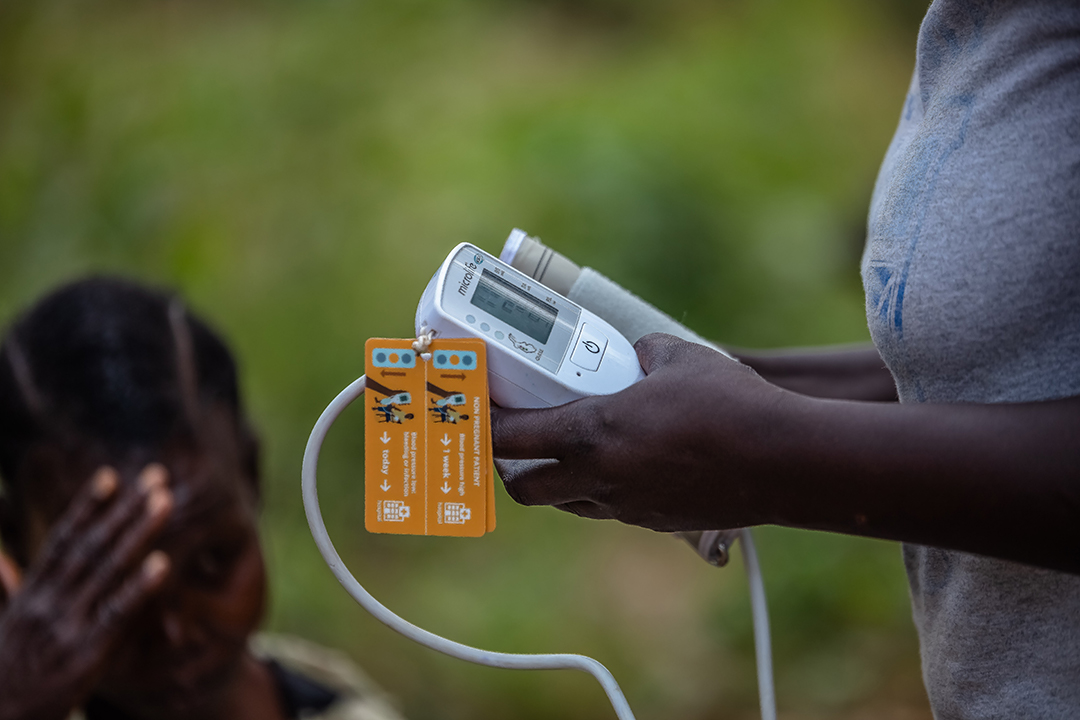
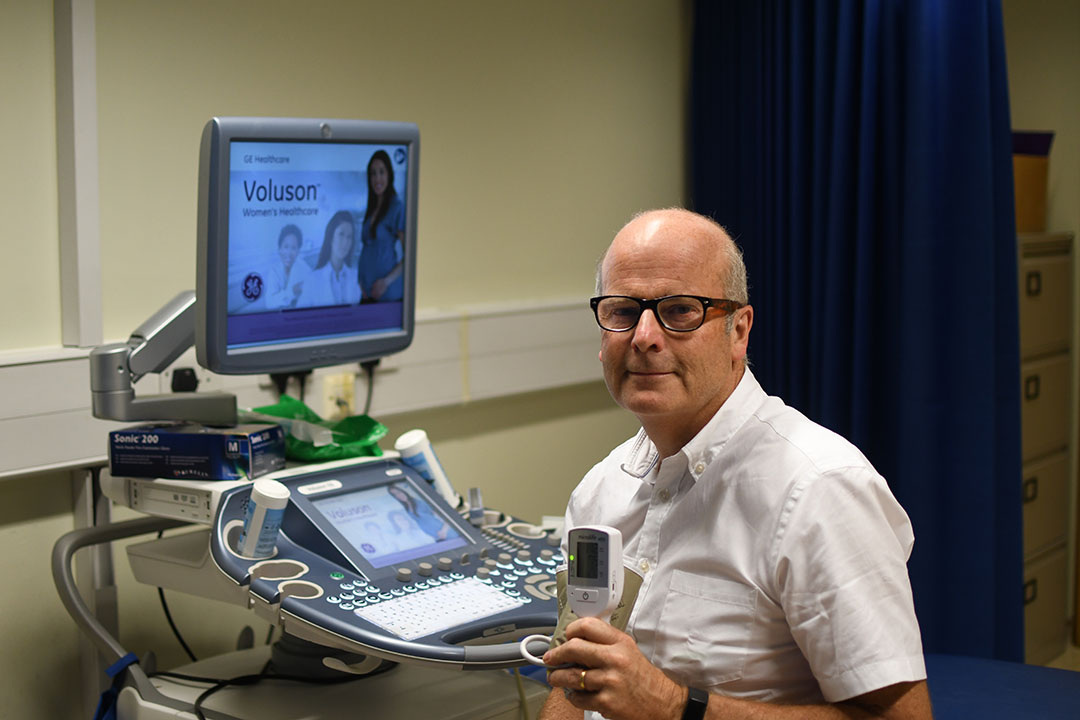
That’s where technology stepped in. Dr Shennan spent the best part of a decade developing a highly accurate, easy-to-use blood pressure monitor called the Cradle Device. Not only does it measure blood pressure, but it also identifies symptoms. It tells the user if action needs to be taken using a simple traffic light system. If a woman’s vital signs trigger a red light, then health work volunteers can get her to hospital as soon as possible. “By detecting these conditions earlier, than you can prevent the mother from dying,” says Dr Shennan. “Her other children are 50 per cent more likely to die if she dies.” So when you protect the mother, you’re also protecting her children.
The Cradle Device is relatively cheap and charges with a simple micro-USB charger which most people use to charge their phones and, cleverly, it also can be plugged into a solar or car battery. It’s a device perfectly suited to refugee situations. And your support for BMS has delivered 700 of these Cradle Devices to go into UNHCR camps in Uganda. Thanks to your prayers and giving now 7,000 women are having their blood pressure checked regularly by health work volunteers. It’s a life-saving measure for mothers and their unborn babies.
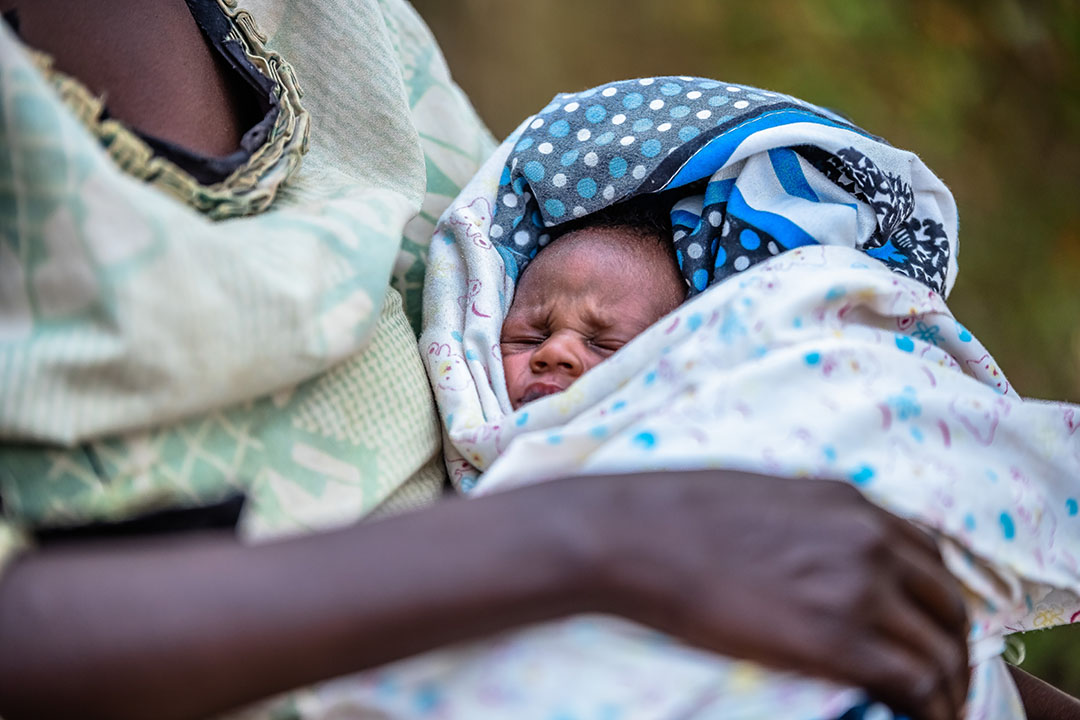
And there’s more exciting news ahead for BMS’ South Sudan’s Conflict Survivors appeal. We’re exploring ways to help displaced people within South Sudan. So look out for an update soon! Right now, though, please consider taking a special offering in your church or making a donation now. Why not join churches across the country on 20 October, 27 October and 19 January who will be gathering to take a special offering as part of Survivor Sundays? Your giving won’t just help South Sudan’s conflict survivors. You’ll be helping to share the fullness of life in Christ among the powerless and poor, with those who never had a chance to hear Jesus’ name, all over the world.
#TECH FOR MISSION
There are even more ways that technology is being used for mission at BMS. In the next Engage magazine you’ll learn how social media is being used in evangelism. Live streaming platforms are being used to reach out to people in places where it’s too dangerous to ask about Jesus. You heard it here first, so watch this space.
BMS has always pioneered in mission. And technology is just one of the exciting tools we use to pioneer today.
Words by Melanie Webb.

